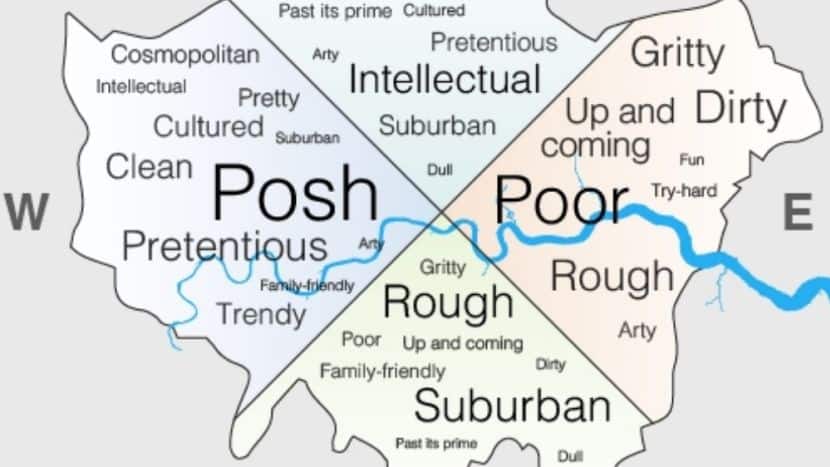More people of African, Asian, and Hispanic descent seem to have lupus than Caucasians. A rational reason for these ethnic differences in lupus would be genetics.
In support of this, science suspects a specific gene deficiency could be to blame.
One that makes people more resistant to malaria. Which would explain why it is more prevalent in malaria-rife parts of the world like Africa and Asia.
The gene in question – “Fc gamma RIIB” – is a receptor involved in the immune response. On paper – a ramped-up immune system would help fight infection. But carry the risk of turning into an autoimmune condition. [1][2][3]
But as a white person with lupus, I find it hard to believe this theory.
For starters, this idea ignores the fact that there are over 1,000 genetic markers with links to lupus. [4] Plus, being susceptible to lupus does not guarantee a person will develop the disease. It means you are more vulnerable to environmental triggers.
Which begs the question, “what environmental trigger affects certain ethnicities more than whites?”
I have an idea – which is what we will cover in this article.
The ‘East-Wind’ Blows
The East End of London carries the label of being the poorer side of the city. It always has.

It still carries a label of being ‘poor’ and ‘dirty’. Whilst being ‘arty’ and ‘try-hard’. But why would a capital city with such stature, neglect one side of the city so much? Especially when you consider its history.
“Air pollution”.
Don’t believe me, look up the ‘The Great Smog of 1952” – and go from there.
The East End was always built to be poor from the start. For one, the docks were once in the east – and docks are rarely healthy in cities. Plus, it’s downstream to the Thames – which for much of its life brought the city’s waste, and smell, with it.
To make things worse, the East End became packed with factories and homes. Much greater than almost anywhere else in the capital. Making air pollution a constant issue there.
This appears to be the case for most cities in the “middle latitudes”. At least for the city’s born out of the ‘old world’. Their poor parts of town sit on the east because that’s where the wind blows. Bringing the dirty, smelly air with it. [5]

In fact, even though the U.S. is an exception to this rule – with it being a ‘new nation’. Half of their deaths due to air pollution stems from out-of-state emissions. With the East Coast being most affected. [6] E.g., 60% of air pollution-related early deaths in New York are from out-of-state emissions. [6]
What does Air Pollution have to do with systemic lupus?
Air pollution is a considerable risk factor for systemic lupus. [7] One that we should not ignore.
It can:
- Effect the immune system of children… setting them up for health problems later in life [8]
- Trigger flares in both children and adults with systemic lupus [9][10]
- Increase a person’s risk of developing systemic lupus [11][12]
Most information on systemic lupus is from western studies. Meaning, most demographic statistics reflect the Western world.
This is why – in the eyes of science – African-Americans top the charts on lupus in the US. As does those of African-Caribbean descent within the UK. Yet, Africa, as a whole, comes in at rock bottom alongside Ukraine. [13]
Now, Africa is not the motherland of lupus. But, it does appear that lupus affects those of African descent more. In fact, until recently, the belief was that SLE was rare in all sub-Saharan Africa. Yet, looking back over the last 30 years, science doesn’t believe this to be the case. [14][15] But it’s still up in the air.
So, we need more studies from around the world. But, until then, we should look at the bigger picture.

Health is where the Home is
Where do immigrants begin life in a new country?
The poor side of town. Where it’s full of buildings, and not a lot of greenery.
For example, the East End of London is home to a big African community. With Newham being home to the fourth-largest Black-African population within the UK. Besides the smallest percentage of White British. [16]
Newham has been home to the likes of Idris Elba, UK rapper Plan B, and Olympic golden boy, Mo Farah. But, it’s also home to the ‘most toxic air in the UK’. [17]
In fact, 20% of the poorest areas in England have the highest air pollution. [18]
It seems to be the same story over in the United States also. With their most ‘toxic hotspots’ being in the Northeast and California. [19] California is on the west coast I know. But it has the most polluted air in America. And for many reasons, which you can read here.
“In the 1930s, ’40 and ’50s, many communities across the country were developed in such a way that environmental hazards were located near non-white, foreign born, low-income neighborhoods.”
– Raoul Liévanos
The same study suggests that those from Latin America are worse off. Having a one-in-three chance of living in an area with high levels of harmful air pollution. [19]
Does Lupus discriminate, or is it the system?
Latin American’s sit among African American’s in their lupus prevalence and death stats. [20] But with the healthcare system as it is in the U.S. today, disadvantaged people lack critical resources, such as access to quality healthcare. [21] They also appear to be the least healthy. [22]
It’s an open secret that America’s healthcare system is broken. [23] Due to its ‘profit-over-people; cost over care” mentality.
This creates mistrust among communities. As seen to be the case with African-American men. [24] This equals a delay in screening and treatment. Not ideal when you have an illness like lupus eating away at you.
Add this to the higher pollution… and we have a good argument of why non-white ethnicities seem to be worse off with lupus.
In fact, the LUMINA study supports this idea. With poorer people more likely to die of lupus… or develop complications stemming from the disease. In part because of limited access to healthcare. [25]
For me, this highlights why the National Health Service (NHS) is a real blessing. So, keep your grubby hands off it Matt Hancock and Neil Record! #WeOwnIt
Learn more on why medical bills in the US are so expensive by watching the CNBC video below.
But, we can go even further…
The other factors: Diet and the Gut
The western world encourages a lazy lifestyle and overeating. Convenience is king.
But on a local level, where we live shapes what we eat. [26]
For instance, we all eat takeouts. [27] But living or working near takeaways means you’re more likely to eat takeouts – and be obese. [28][29] Besides developing diabetes. [30]
Deprived areas have a higher number of fast-food and takeaway outlets. [31] So, no wonder immigrants replace the healthy parts of their native diet with the worst aspects of western diets. [32] With their next-generation coming out worse. [33][34]
Plus, those with low income rely on processed and fast foods. Why wouldn’t they? junk food is cheap and available. Whereas their ‘traditional’ foods will be expensive due to import costs.
Together, this lifestyle equals a rapid loss in gut microbiome diversity. [34] Something science sees in those with active lupus. Alongside higher bad bacteria. [35]
Restoring gut bacteria can improve lupus nephritis in mice. [36] Suggesting that changes in the gut microbiota could control lupus. Adding weight to this idea.
Not surprising when you consider that the gut bacteria:
- Trains the immune system [37]
- Protects us against opportunistic pathogens [38]
- Harvests nutrients and energy [39]
The influence of lupus on the human gut microbiome is not characterised by ethnicity. It seems to be down to the depletion of “Firmicutes” and the enrichment of “Bacteroidetes”. [40]
Add this to the fact that low income and poor diet contribute to higher death rates. [41] We have another argument behind the ethnic disparities seen in lupus. That the environment itself plays a bigger role than environmental triggers.
Especially when you consider that air pollution also alters the gut composition. [42][43]

Pingback: Celebrities with Lupus (13 of them in fact) -
Pingback: Phthalates: Hard to say; Harder to Avoid (But here's 3 Steps you can take) -